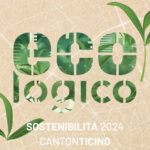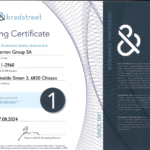Declaration of goods
Taxation of tradable goods for permanent import into Switzerland
Marketable goods are goods intended for resale or commercial use, including at the traveller’s or receiver’s business.
Goods intended for final importation into the Swiss customs territory must be presented to a Swiss customs office and declared for customs assessment. In addition to the correctly completed import declaration, the following accompanying documents must be handed over.
Persons subject to the obligation to declare and therefore customs debtors are those who transport the goods (carriers of the goods) or have them transported across the border (importers, consignees, consignors, principals).
It is possible to carry out the taxation of marketable goods only at certain customs offices and during office hours (see “Opening hours and addresses of customs offices”).
Carriers shall provide the corresponding customs services in accordance with the Incoterms in force.
Customs duties and other taxes
Customs duties depend on the gender, material, status, use and weight of the goods and are determined with the help of the calculation basis (as a rule, the gross weight). The condition and weight of the goods at the time of the customs declaration are decisive for the calculation of duties. The actual gross weight (including transport packaging) may vary considerably from the weight indicated on the delivery note.
If certain conditions are met, the goods may be imported duty-free or at a reduced rate (see under “Free trade agreements/preferential arrangements”).
For economic and administrative reasons, customs duties of up to CHF 5 are not levied.
In addition to any import duty, the goods are subject to value added tax (VAT; see “import VAT” below). Additional taxes are also payable for certain goods: incentive taxes (VOC, CO2), tobacco tax, beer tax, mineral oil tax and so on.
Tariff headings, updated duty rates, information on other charges (VAT, incentive taxes, tobacco, beer and mineral oil taxes, etc.) as well as information on prohibitions, restrictions and permit obligations are available in the Electronic Customs Tariff at www.tares.ch.
Payment of taxes
As a matter of principle, import duties must be paid in cash directly on the spot.
With special agreements, the SA Luciano Franzosini is responsible for the customs formalities by paying the taxes and invoicing them subsequently to the principal.
Free trade agreements/preferential arrangements
Goods originating in countries with which a free trade agreement has been concluded or in developing countries may generally be imported duty-free or at a reduced rate (preferential arrangements). The effective rate for each Member State shall be indicated in the electronic customs tariff www.tares.ch. In order to benefit from importation benefiting from customs concessions, a valid proof of origin must be submitted and an application for taxation at the preferential rate must be made in the declaration. Questions concerning the issue of proofs of origin should be addressed to the authorities of the exporting country.
Details can be found below: free trade agreements and developing countries.
VAT (import tax)
VAT is 8% of the calculation basis. For certain goods (e.g. foodstuffs, books, magazines or medicines) the reduced rate of 2.5% applies. For more details see the following link: art. 25 LIVA.
Tax amounts up to CHF 5 are not collected. This amount of tax corresponds to the calculation basis of CHF 62 with a VAT rate of 8 percent or CHF 200 with a VAT rate of 2.5 percent.
As a rule, the basis of calculation includes the consideration that the person pays or has paid for the goods, and this also applies to goods purchased on the Internet. This is based on the invoice or purchase contract. In certain cases, the market value is taken into account, e.g. in the case of donations. This value corresponds to the amount that another buyer would have to pay for the good.
To this value are added all costs up to the place of destination in Switzerland (e.g. Swiss Post transport services) as well as import duties (e.g. customs duties). Foreign VAT is not included in the calculation basis, provided that the supplier has indicated it on the invoice or purchase contract.
For the conversion into Swiss francs of the consideration or market value indicated in foreign currency, the exchange rate (sale) on the stock exchange on the eve of the incurrence of the tax debt, usually the previous day, is decisive: Exchange rates (sale).
If there are doubts about the accuracy of the customs declaration or if the value is not indicated, we can estimate the value of the goods.
Import permits and restrictions
Depending on the goods, the rules must be taken into account, which do not concern the collection of customs duties (so-called non-customs provisions DNND). It is important to take care of the necessary permits even before making the declaration. The relevant information is available in the electronic customs tariff www.tares.ch.
Stock documents
The respective accompanying documents must be submitted voluntarily together with the import declaration. The most important documents are invoices, any proofs of origin, permits/certificates as well as official attestations or certificates of analysis.
Depending on the case, other transport documents such as delivery notes, load lists, weight certificates or taxation instructions may help.
Drawing up the customs declaration
It is possible to assign the task of customs formalities to the SA Luciano Franzosini. For more information please visit our Custom Clearances page
Refund of foreign VAT
Swiss customs cannot refund foreign VAT.
If you have any questions about the refund of foreign VAT, please contact the foreign supplier. Only the latter can refund it or prepare an invoice directly without VAT. For the necessary information, he can contact his tax authority.
Opening hours and addresses of Swiss customs
For the customs clearance of marketable goods, the opening hours of customs offices must be observed. Customs declarations can be made from Monday to Friday during taxation hours. Some customs offices are also open on Saturday mornings.
For opening hours click on the link: Addresses of customs offices.





